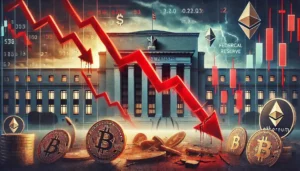
Russia has imposed a blanket ban on cryptocurrency mining in 10 of its key regions, citing energy demands and pricing disparities. This move comes amidst the ongoing global debate over Bitcoin reserves.
According to officials, the restrictions are aimed at addressing regional energy demands while resolving disparities in electricity pricing. For instance, maintaining low electricity prices in certain oblasts often leads to higher costs for other consumers – creating an imbalance. Regional policy specialist Vladimir Klimanov supported this position, emphasizing the importance of establishing equitable electricity pricing across the country to ensure fairness and stability in the energy market.
He explained that residents and businesses in central Russia actually pay part of the costs that arise due to low electricity tariffs in regions like North Caucasus or Far East. He further added that the measures introduced by the government should contribute to more equitable conditions for doing business in such a specific area throughout the country.
While this move may raise eyebrows globally, it’s worth noting that Russia is not entirely opposed to crypto. In fact, Russian President Vladimir Putin recently acknowledged the growing prominence of cryptocurrencies like Bitcoin, recognizing their transformative potential within global financial systems. Speaking at the Moscow Investment Forum on 4 December, Putin’s comments reflected a shift in perspective, moving from criticism of Bitcoin to a more balanced stance that falls short of outright prohibition.
In his address, Putin wisely noted, “Who can ban Bitcoin? Nobody. And who can prohibit the use of other electronic means of payment? Nobody. Because they are new technologies.” This evolving outlook could potentially lead Russia to harmonize its regulatory framework with the opportunities presented by digital currencies in the future.
In summary, while Russia’s decision to ban crypto mining across key regions may be seen as a step backward for some, it highlights the varying global positions on cryptocurrency regulation and adoption.
Source: ambcrypto.com


